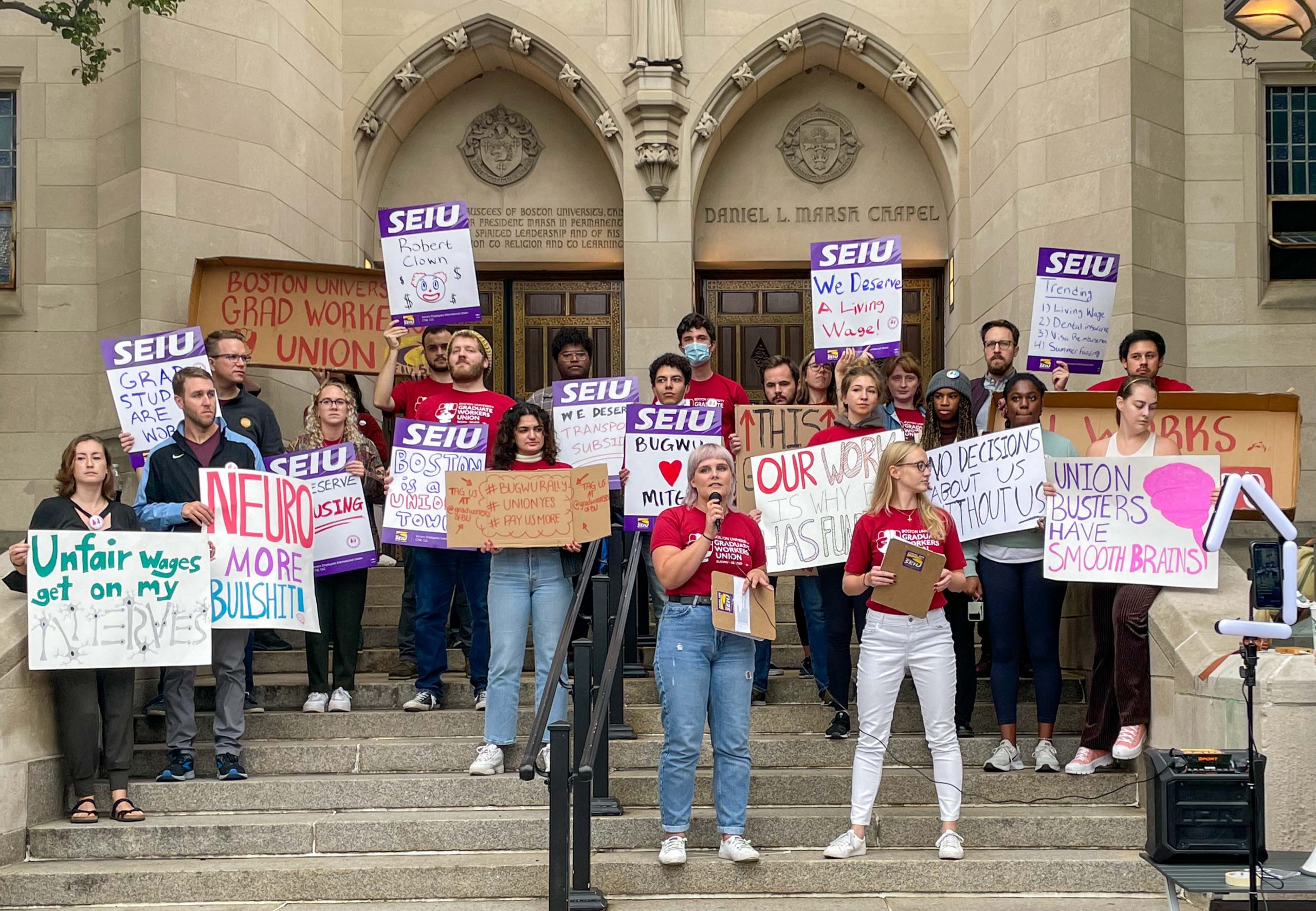CORRECTION: A previous version of this article cut down Katie Meyer’s quote to leave out “I don’t think.” The article has been updated to reflect this change.

Boston University Graduate Workers held a rally at Marsh Plaza Sept. 20 as part of their bid for unionization, capping off a sustained labor rights campaign that began Sept. 2.
BU Graduate Workers United cited wages and workload as two of their biggest concerns. Graduate workers are not earning a living wage, which was constantly said at rally. According to the Massachusetts Institute of Technology living wage calculator, $46,918 is a living wage for an adult with no children living in Boston.
While stipends vary across departments, BU graduate workers generally earn between $24,000 and $30,000 a year, Jordan Pickard, a doctoral student in the English department said.
“There are graduate students who have to rely on food pantries or have to borrow canned beans from their roommate,” Pickard said. “I recall students saying things like they have lost 15 pounds for the summer just because they don’t have enough money to feed themselves regularly.”
Nairan Wu, a doctoral student in linguistics and a speaker at the rally, said graduate students were upset over how the school’s COVID-19 policies were made without consulting graduate workers.
“We are the people who are actually teaching in their poorly ventilated rooms,” Wu said. “They treat us like students when it’s convenient for them, and they use us as workers when it benefits them.”
Aarohi Goel, a junior in the College of Arts and Sciences and action coordinator at the Boston University Young Democratic Socialists of America said graduate students are overworked and underpaid.
“It is very important to us as undergraduate students that our workers at the University are fairly compensated for all the work that they do,” Goel said.
The call for a living wage comes amidst BU’s growing assets, which stood at 8.3 billion in 2021. Katie Meyer, a doctoral student at the Wheelock College of Education and Human Development said this has prompted those speaking at the union to question why the money cannot be spent on graduate workers.
“President Brown has made a million dollars in salary. There are definitely instances in which we can see that BU for certain has the funds.” said Meyer. “I don’t think that in any way us asking for a living wage should be taken away from students.”
A minimum of 30% of graduate workers must sign authorization cards before the National Labor Relations Board can conduct an actual vote for graduate workers to vote on unionization.
Meyer said unionization is a method of coming together.
“Unions are incredibly important for securing material gains like a contract and a living wage,” Meyer said, “but it’s also a really important community where we can all come together and support one another.”


























































































































